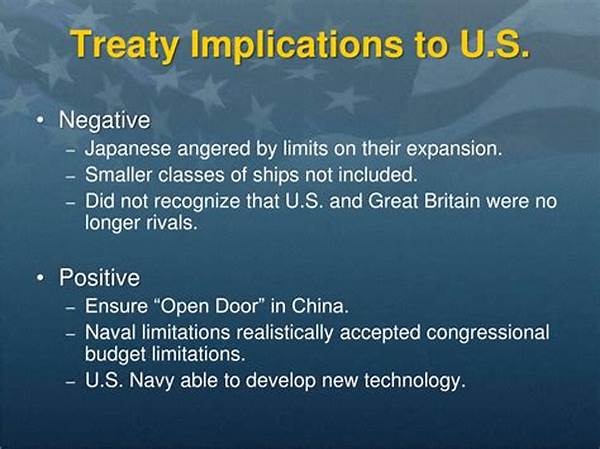The interplay between treaties and military power has long been a complex yet crucial aspect in international relations. In the ever-evolving geopolitical landscape, treaties play a significant role in dictating military strategies and alliances among nations. These legally binding agreements not only influence military capabilities but also reflect broader strategic goals of the involved parties. This article delves into various dimensions of treaty implications on military power, exploring the resultant effects on national defense, international relations, and the global balance of power.
Historical Context of Treaty Implications on Military Power
Throughout history, treaties have served as pivotal instruments in shaping military power structures. From strategic arms limitations to cooperative defense agreements, the implications of these treaties are manifold. Treaties can curb the arms race by setting thresholds for weapon stockpiles, thereby promoting stability. Moreover, they often lay the groundwork for diplomatic engagements, facilitating dialogues that preclude conflicts. Treaty implications on military power are significant as they dictate military postures and define the rules of engagement among nations. Hence, they contribute not only to peacekeeping but also to the projection of military influence. Such implications underscore the strategic importance of treaties in maintaining global equilibrium and preventing unbridled military escalations.
Key Factors in Treaty Implications on Military Power
1. Limitation Treaties: Limitation treaties are instrumental in defining permissible levels of military capabilities among nations, offering a framework that aims at avoiding armed conflict.
2. Alliance Treaties: These treaties create obligations among signatories for mutual defense, impacting military strategies and resource allocations.
3. Disarmament Treaties: By enacting disarmament measures, these treaties significantly alter the military landscape, leading to reduced armament competitions.
4. Non-Proliferation Treaties: They play a critical role in controlling the spread of weapons of mass destruction, thereby influencing global security dynamics.
5. Peace Treaties: Ensuring cessation of hostilities, peace treaties redefine military objectives and force structures, fostering stability.
Modern Treaty Implications on Military Power
In contemporary international relations, treaty implications on military power have evolved to address new security challenges. The proliferation of cyber warfare and advanced technology necessitates the reevaluation of existing treaties. New treaties are increasingly crafted to encompass these modern threats, ensuring that military power is wielded responsibly. The treaties often embody collaborative security measures to tackle issues such as terrorism and transnational crimes. Consequently, modern treaty implications on military power extend beyond traditional military dimensions, integrating comprehensive approaches to security. By doing so, treaties continue to play an essential role in shaping military policies and agreements, reflecting an adaptive response to the complexities of modern warfare.
Detailed Examination of Treaty Implications on Military Power
1. Strategic Shifts: Treaty implications on military power often necessitate strategic realignments among nations, encouraging cooperation over confrontation.
2. Resource Allocation: Treaties influence the prioritization and distribution of military resources, focusing on meeting international obligations.
3. Technological Innovation: Some treaties drive technological advancements by encouraging defense innovation within defined limitations.
4. Global Security Dynamics: Treaties affect global security settings, with a focus on mutually assured peace and prevention of hostility.
5. Intelligence Sharing: Through treaties, military entities are better positioned to share crucial intelligence, enhancing cooperative security efforts.
6. Training & Exercises: Military exercises and training are often influenced, encouraging joint operations with allies to strengthen collaborative capabilities.
7. Defense Industry Impacts: The defense industry experiences shifts in demand patterns owing to treaty-led changes in military strategies.
8. Diplomatic Engagement: Treaties result in increased diplomatic efforts aimed at conflict resolution and military de-escalation.
9. Environmental Considerations: Modern treaties often incorporate environmental concerns, ensuring military practices are mindful of ecological impacts.
10. Humanitarian Aspects: Humanitarian clauses in treaties are pivotal for ensuring military actions adhere to international human rights standards.
Treaty Implications on Military Power in Defense Policy
The treaty implications on military power are inherently dynamic, affecting defense policy formulation and implementation. As treaties seek to curtail excessive militarization, defense policies adapt to incorporate these international constraints into national strategic objectives. This adaptation ensures compliance with international laws while retaining the capacity to defend national interests. Defense policies thus evolve to prioritize areas such as cybersecurity, intelligence collaboration, and joint defense initiatives. Consequently, treaties shape the trajectory of national defense policies as they balance domestic imperatives with overarching international commitments, paving the way for a collaborative global environment.
Economic Implications of Treaty Limitations on Military Power
Beyond strategic dimensions, treaty implications on military power extend into economic realms. Military expenditure is a substantial concern for governments, where treaties often mandate budget reallocations to meet engagement necessities responsibly. For instance, funds are directed from burgeoning weapon systems to areas required by treaty stipulations. Defense contractors and industries adapt by aligning their production with treaty-enforced demands, creating economic shifts. Therefore, treaties influence economic strategies within the military-industrial complex, fostering growth and innovation in consonance with international obligations. This perpetuates an economy that aligns with global security frameworks while supporting national defense objectives.
Conclusion: Comprehensive Understanding of Treaty Implications on Military Power
In conclusion, treaty implications on military power are multifaceted, influencing not only defense mechanisms but also international relations and global security frameworks. Treaties serve as vital components ensuring international peace and stability by redefining military strategies and power structures. Through careful negotiation and compliance, countries leverage treaties to maintain a judicious balance of power that favors cooperative rather than confrontational approaches. The evolution of treaties to address emerging security issues exemplifies their enduring relevance, underscoring their role as indispensable tools in shaping a peaceful international order where military power is exercised responsibly and collaboratively.





